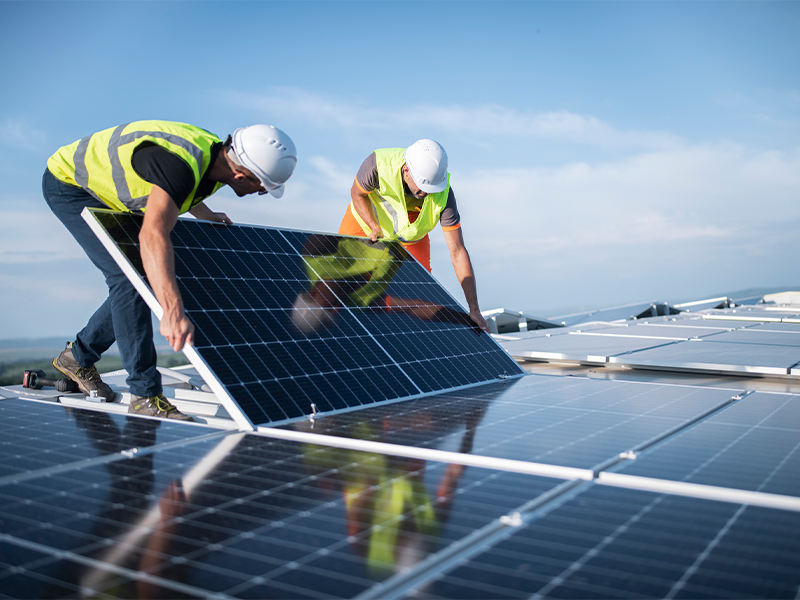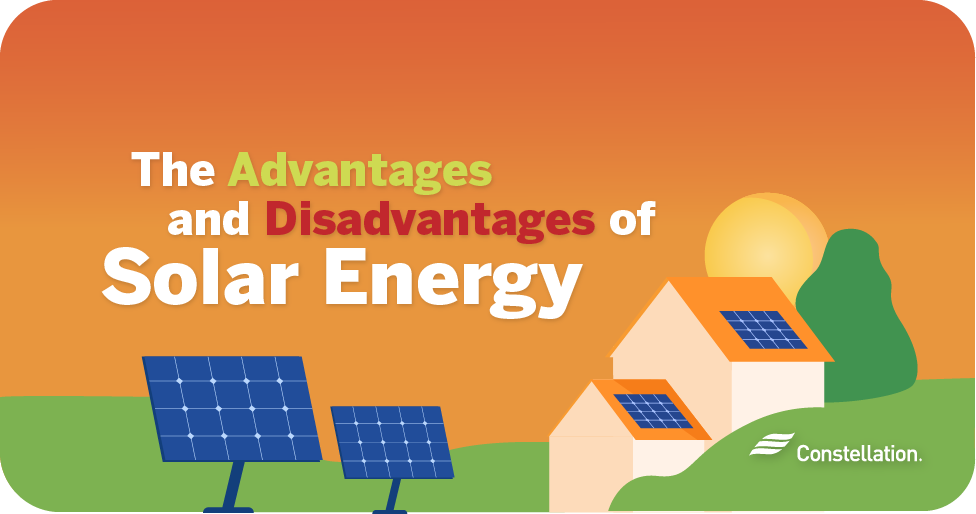Simply Solar Illinois – Tailored Solar Solutions for All Budgets
Simply Solar Illinois – Tailored Solar Solutions for All Budgets
Blog Article
Exactly How Solar Power Can Help You Save Cash and Decrease Your Carbon Footprint
The combination of solar power into your power profile offers an engaging possibility for both monetary cost savings and environmental stewardship. As numerous government rewards end up being readily available, the inquiry arises: just how can one efficiently browse the first financial investments and ongoing benefits of solar innovation to optimize both financial and ecological gains?
Understanding Solar Energy Cost Savings
While the change to solar energy typically involves a first financial investment, recognizing solar power cost savings is essential for house owners and companies alike. Solar power systems can substantially reduce electrical energy expenses by harnessing the sun's power, converting into considerable lasting financial advantages. By producing their own electricity, users decrease reliance on grid power, which undergoes rising and fall rates. These financial savings can collect over time, often leading to a rapid return on investment.
Moreover, solar power systems might certify for numerous economic motivations, including tax obligation credits and rebates, further boosting their cost-effectiveness. The availability of web metering allows customers to market excess power back to the grid, producing an extra income stream. These factors add to the general cost savings associated with solar power.

In enhancement to guide monetary cost savings, solar power supplies the included advantage of increasing building value. Homes equipped with photovoltaic panels are typically much more appealing to customers, as they guarantee reduced power expenses - Simply Solar Illinois. Understanding these elements is necessary for any person considering solar energy, as it highlights not simply the possible monetary gains, however also the more comprehensive environmental and economic benefits of adopting renewable resource solutions
Preliminary Expenses vs. Long-Term Perks
When assessing solar power, it is essential to consider the preliminary prices against the long-lasting benefits. The in advance investment for photovoltaic panels, installment, and associated devices can be significant, often ranging from $15,000 to $30,000, depending upon the system size and home power requirements. This initial expenditure may hinder some homeowners; nonetheless, it is important to take into consideration the possible financial savings gradually.
When set up, solar power systems can substantially reduce or perhaps get rid of month-to-month electrical power expenses, bring about substantial long-term monetary advantages. Researches suggest that home owners can conserve anywhere from $10,000 to $30,000 over the life-span of their solar system, commonly 25 years. Furthermore, numerous states provide motivations, tax credit ratings, and rebates that can balance out preliminary expenses, making solar more easily accessible.

Reducing Your Carbon Impact
Lowering your carbon footprint is a crucial consideration in today's environmentally aware society, and adopting solar energy is just one of one of the most reliable methods to accomplish this goal. Solar power is a clean, renewable energy that significantly diminishes dependence on nonrenewable fuel sources, which are major contributors to greenhouse gas exhausts.

Moreover, the widespread adoption of solar innovation urges the advancement of environment-friendly tasks and sustains advancements in energy storage space and efficiency. The more people and companies buy solar power, the better the collective reduction in carbon discharges, fostering a cleaner ambience for future generations.
Government Incentives and Rebates
Adopting solar power not only benefits the atmosphere yet can additionally result in substantial monetary savings, specifically with the availability of federal government incentives and refunds. Different government, state, and local programs are developed to motivate homeowners and businesses to invest in solar energy systems, making the transition extra economical.
One of one of the most prominent rewards is the Federal Financial Investment Tax Credit (ITC), which allows solar system proprietors to deduct go to this web-site a significant portion of the installation costs from their government tax obligations. This incentive has actually been crucial in decreasing the ahead of time costs connected with solar power systems. Additionally, numerous states provide their own tax obligation debts, grants, and discounts that can better boost cost savings.
Furthermore, some city governments supply real estate tax exemptions for solar setups, making sure that home owners do not face enhanced real estate tax as a result of their eco-friendly energy investments. Energy firms might likewise provide motivations, including net metering and feed-in tariffs, which enable solar power individuals to offer excess power back to the grid.
Selecting the Right Solar System
Choosing the suitable planetary system is critical for making the most of power performance and monetary benefits. The choice pivots on a number of variables, including energy needs, budget plan, and offered area. Home owners ought to begin by assessing their electrical power consumption to figure out the system size required for optimal performance.
Next, consider the different kinds of solar innovations available. Simply Solar Illinois. Solar (PV) panels are the most typical, converting sunlight directly right into power, while solar thermal systems this post focus on home heating water. Each type has distinctive benefits depending upon specific demands
Budget plan factors to consider are likewise vital. try this out First installation prices can differ considerably, so it is very important to contrast quotes from several companies and check out financing alternatives. Federal government incentives and rebates can better minimize the economic worry, making solar systems a lot more obtainable.
Verdict
In recap, solar energy offers a viable service for accomplishing substantial cost savings while concurrently reducing carbon discharges. The preliminary financial investment, though considerable, yields substantial long-term economic advantages, with potential savings ranging from $10,000 to $30,000 over 25 years. Moreover, the ecological benefits of solar power add to lasting methods vital for combating environment change. Federal government motivations improve the feasibility of solar technology fostering, encouraging a change towards a cleaner, much more economically reliable power source.
Report this page